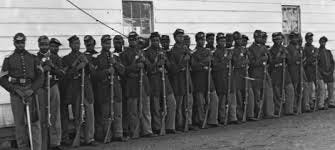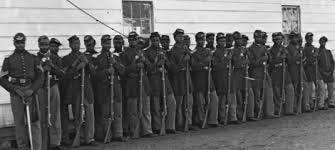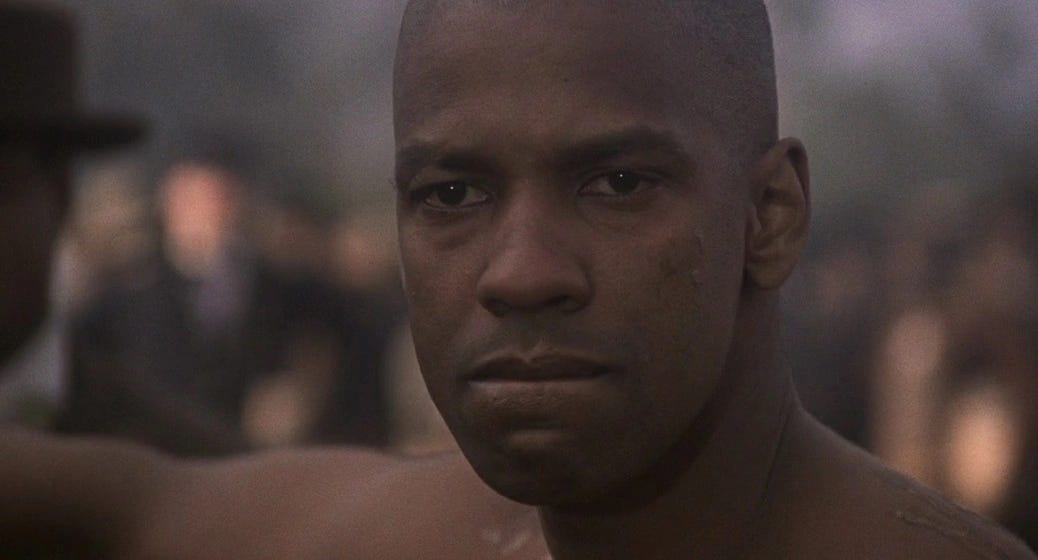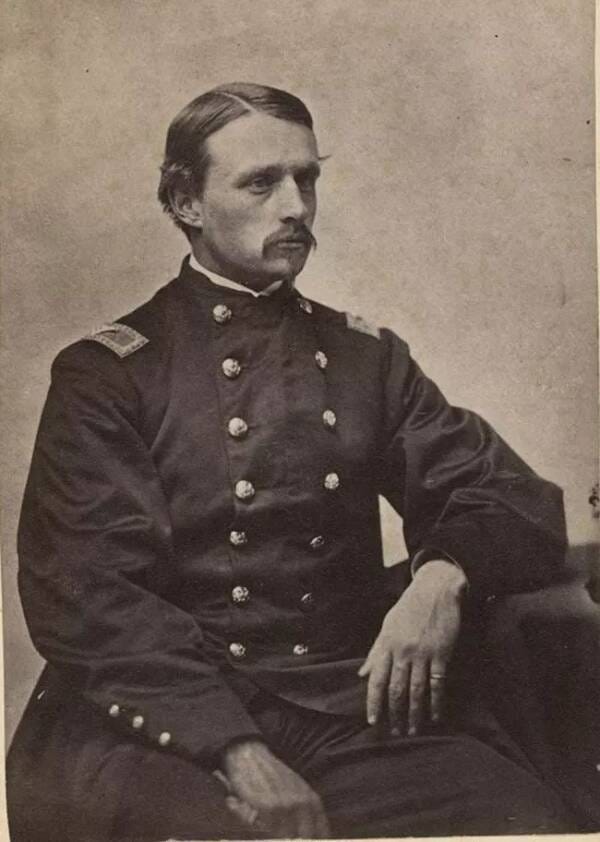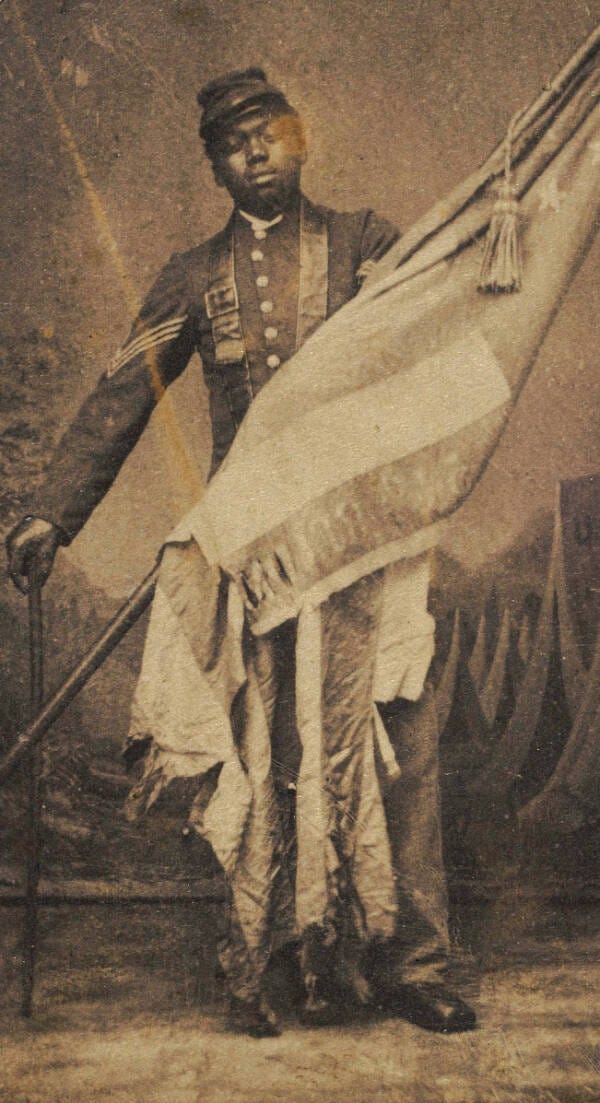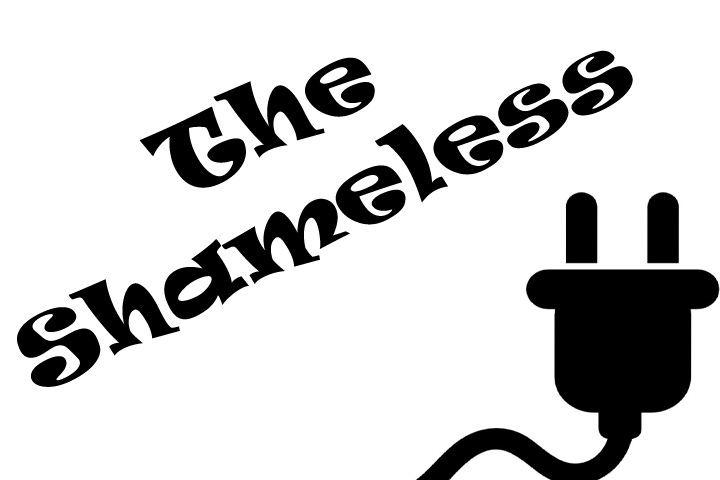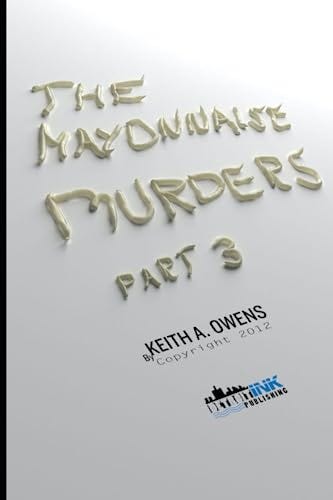The All-Black 54th Massachusetts Infantry Civil War Regiment
American History that others may refuse to teach
Soldiers of the 54th
Issue #371 American History July 25, 2023
In 1989, the Award Award-winning film "Glory" told the story of the all-Black volunteer 54th Massachusetts Infantry Regiment. The movie starred Matthew Broderick as 25-year-old Colonel Robert Gould Shaw, Denzel Washington as Private Tripp, Morgan Freeman, Cary Elwes, Jihmi Kennedy, and Andre Braugher. Denzel won his 1st Academy Award, for Best Supporting Actor, for his role as Private Silas Tripp. Colonel Shaw was the only actual person depicted in the movie.
The screenplay by Kevin Jarre was based on the books Lay This Laurel (1973) by Lincoln Kirstein and One Gallant Rush (1965) by Peter Burchard, and the personal letters of Colonel Shaw.
In one of the most excruciating scenes of the movie (and probably the scene for which Washington won his award), Tripp, a runaway slave, deserts and is caught, and Shaw orders him flogged in front of the regiment. Shaw then learns that Tripp left to find proper shoes because his men were being denied these supplies.
Denzel Washington as Private Tripp getting whipped
"Glory" was one of the best semi-fictional Civil War-era movies, but the 54th Massachusetts and their history are real, whether Ron DeSantis and his ilk think so or not.
“We Are Speaking,” which we publish seven days a week, is financially supported by our paid subscribers and by your investments in the products and services offered by the Global Creative Community Branding and Marketing Academy. Please make sure to view and act on the important information at the end of this article to help support and grow “We Are Speaking.” Thank you!
The 54th Regiment Massachusetts Infantry
The 54th Regiment Massachusetts Infantry was a volunteer Union regiment organized in the American Civil War. Its members became known for their bravery and fierce fighting against Confederate forces. It was the second all-Black Union regiment to fight in the war, after the 1st Kansas Colored Volunteer Infantry Regiment.
For the first two years of the Civil War, which began in 1861, Black men were not permitted to join the fight at all, due to a 1792 law forbidding Black people from bearing arms in the U.S. Army.
The regiment was formed in February 1863, a month after the Emancipation Proclamation went into effect on January 1, 1863, by Governor John A. Andrew of Massachusetts, who issued the Civil War’s first call for Black soldiers. Two of the sons of abolitionist Frederick Douglass also enlisted.
The unit had been formed in Massachusetts, but it drew men from all over America, Canada, and the Caribbean Islands, who were eager to fight after the Emancipation Proclamation allowed them to do so.
Though the infantrymen were all Black, the Army required commanding officers to be white. So Andrew tapped 25-year-old Robert Gould Shaw, a Harvard dropout and the son of abolitionists, to lead the all-Black regiment.
Colonel Robert Gould Shaw
At nine o’clock on the morning of May 28, 1863, the 54th’s 1,007 Black soldiers and 37 white officers gathered in the Boston Common and prepared to head to the battlefields of the South. They did so in spite of an announcement by the Confederate Congress that every captured Black soldier would be sold into slavery and every white officer in command of Black troops would be executed.
This announcement by Jefferson Davis, president of the Confederacy, was a response to the Emancipation Proclamation that freed all slaves in the traitorous Rebel States.
Cheering well-wishers, including the anti-slavery advocates William Lloyd Garrison, Wendell Phillips, and Frederick Douglass, lined Boston’s streets.
The enlisted men of the 54th were recruited on the promise of pay and allowances equal to their white counterparts. This was supposed to amount to subsistence and $13 a month. Instead, they were informed upon arriving in South Carolina, the Department of the South would pay them only $7 per month ($10 with $3 withheld for clothing, while white soldiers did not pay for clothing at all). Colonel Shaw and many others immediately began protesting the measure.
Refusing their reduced pay became a point of honor for the men of the 54th, including the white commanders, who continued to appeal to Congress to fulfill the promise of equal pay.
The original Congressional Bill, enacted on June 16, 1864, authorized equal and full pay to those enlisted troops who had been free men as of April 19, 1861. Of course, not all the troops qualified.
Finally, on September 28, 1864, the U.S. Congress took action to pay all of the surviving men of the 54th, paying the approximately $170,000 that was owed to them. Most of the men had served for 18 months.
Photo Credit: Getty Images
The Battle of Fort Wagner, South Carolina
The regiment’s most famous battle was at Fort Wagner on July 18, 1863. The regiment led the charge on the fort and suffered heavy casualties. Of the 600 men who charged the fort, only 272 were able to return to their lines.
As night fell, Shaw led his men over the walls of the fort. (This was unusual; typically, officers followed their soldiers into battle.) But the Union generals had miscalculated: 1,700 Confederate soldiers waited inside the fort, ready for battle. The men of the 54th were outgunned and outnumbered. Two hundred and eighty-one of the 600 charging soldiers were killed, wounded, or captured. Shaw himself was shot in the chest on his way over the wall and died instantly.
After the battle, and to show their contempt for the soldiers of the 54th, the Confederates dumped all of their bodies in a single unmarked trench and sent a cable to the Union leaders that “we have buried [Shaw] with his niggers.”
The Southerners expected that this would be such an insult that white officers would no longer be willing to fight with Black troops. In fact, the opposite was true: Shaw’s parents, who were wealthy and prominent abolitionists, replied that there could be “no holier place” to be buried than “surrounded by…brave and devoted soldiers.”
The 54th lost the battle at Fort Wagner, but they did a great deal of damage there. Confederate troops abandoned the fort soon afterward.
The Legacy of the 54th
The 54th was widely acclaimed for its valor during the battle, and the event helped encourage the further enlistment and mobilization of African-American troops, a key development that President Abraham Lincoln once noted as helping to secure the final total victory of the Civil War.
By the end of the war, roughly 179,000 Black men had fought for the Union. That was about 10 percent of the whole Union Army.
Sergeant William Harvey Carney
Decades later, in 1900, Sergeant William Harvey Carney was awarded the Medal of Honor for grabbing the U.S. flag as the flag bearer fell, carrying the flag to the enemy ramparts and back, and singing "Boys, the old flag never touched the ground!" This event was also one of the most captivating and tear-inducing scenes of the movie.
However, the movie "Glory" did not mention Carney, Frederick Douglass' sons, or any other real Black servicemen.
The 54th Massachusetts Infantry was also significant because it helped to change attitudes about African Americans and their ability to fight in combat. Before the war, many people believed that African Americans were not capable of fighting as well as white soldiers. The 54th Massachusetts Infantry proved these people wrong by fighting bravely and fiercely against Confederate forces.
After the Civil War ended, the 54th Massachusetts Regiment was disbanded on August 20, 1865.
Let us know your thoughts about what new information you learned in the comments or in the Substack Notes feature.
You can always leave any questions in the comments or email us.
You can also receive up to six months of a paid subscription for referring people to us with the Share Button or the Refer Button.
This article is free to access for 1 week after publication. Please consider becoming a paid subscriber for $5/month or less to access all of the articles and other benefits.
This is your chance to support everything Keith and Pam do. We appreciate you!
Purchase and download your copy of the “Branding And Marketing For The Rest Of Us” eBook for Independent Authors and Creative and Solo Professionals and other valuable eBooks.
Enroll in one of the 6-course bundles designed especially for you: “Author and Book Marketing” and/or “Essential Creative Marketing.”
Purchase your copies of “Detroit Stories Quarterly” issues.
Purchase your copies of “The Mayonnaise Murders” Parts 1, 2, and 3
What else do Keith and Pam do?
Where else can you find us?
Click the link below to learn everything you need to know and review everything we offer for independent writers and creative and solo professionals.

